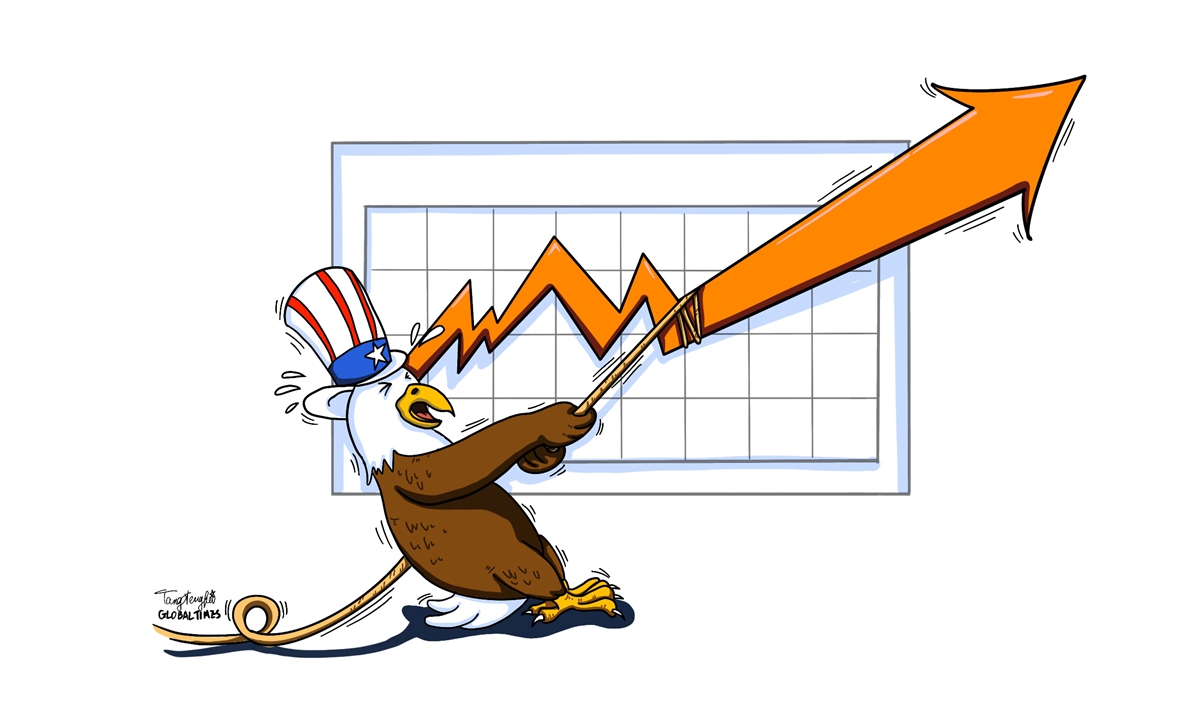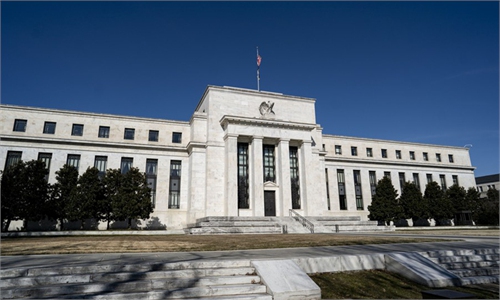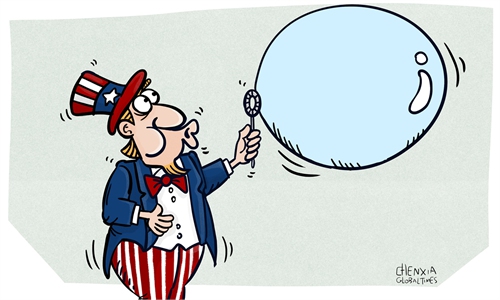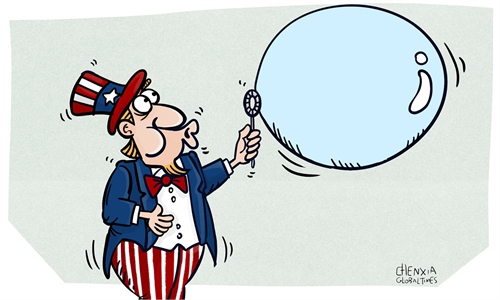
Illustration: Tang Tengfei/GT
While it is uncertain whether the Biden administration's helicopter money policies will spur a new round of economic growth, it is already clear that spending spree will first mire the US economy in a bottomless pit of inflation.Various economic indicators issued recently showed that this round of inflation may be more rampant than many had expected. The core personal consumption expenditures index, a key gauge of inflation, rose a faster-than-expected 3.1 percent in April from a year earlier, marking the highest annual rise since July 1992.
In the context of full-blown inflation in the US, not only have raw materials and commodities prices soared, but even home values and rents are rising at historic rates.
Meanwhile, the Federal Reserve has repeatedly stressed that the current price increase is temporary, which, however, does little to reassure financial markets. Last week, Fed Vice Chair Richard Clarida said the central bank would be able to deal with rising inflation without derailing the economic recovery. The comments came in just two weeks after he acknowledged that the US consumer price index, which rose 4.2 percent in the 12 months through April, was "well above" what he had anticipated.
The main cause of this round of surging inflation is the massive liquidity the Fed poured into global markets under an unlimited easing policy aimed at boosting its pandemic-battered economy. So far, the total assets on the Fed's balance sheet have hit a record $7.9 trillion, up 88 percent from $4.2 trillion in February 2020. And the number looks set to continue to rise, considering the background that US President Biden is about to propose a staggering $6 trillion budget for fiscal year 2022.
Although it is not clear yet when the Fed will end its easing policy, there is growing concern that a sharp rise in inflation could lead to price increases that may curb consumer spending and thus hinder economic recovery.
Moreover, the spillover risks from the skyrocketing US stimulus may weaken the US dollar's position as a world currency.
In fact, severe global inflation may have already come as the cost of the US crisis-handling. Soaring commodities prices have spread to nearly all products worldwide, delivering a heavy blow to other economies through imported inflation. Many developing countries such as Brazil have seen their currencies depreciate rapidly.
The world needs to be alert to the potential consequences of an unprecedented wave of inflation surge.



